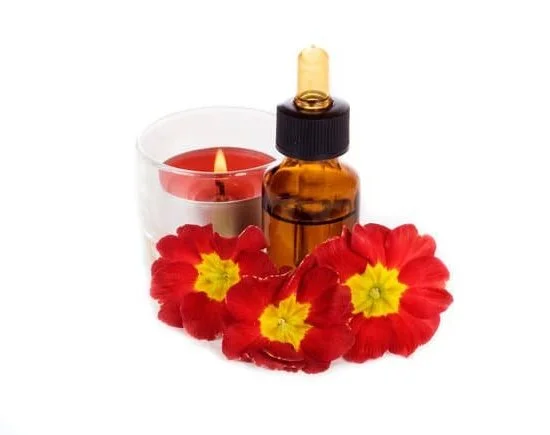How can aromatherapy help with stress? Aromatherapy is a holistic healing treatment that uses natural plant extracts to promote health and well-being. In this article, we will explore the concept of aromatherapy and its potential for alleviating stress. With the increasing demands of modern life, many people turn to alternative therapies like aromatherapy to find relief from stress and anxiety.
Aromatherapy has been used for centuries as a method of promoting relaxation and reducing stress. The use of essential oils derived from various plants is believed to have a positive impact on mood and emotions, making it a popular choice for those seeking natural remedies for stress management.
In the following sections, we will delve into the scientific evidence behind aromatherapy and its effectiveness in alleviating stress, as well as the specific oils and techniques that can be used for stress relief.
By understanding how aromatherapy works and its potential benefits, individuals may be able to incorporate these practices into their daily self-care routines to achieve a greater sense of calm and relaxation. Whether through diffusers or topical application, aromatherapy offers a natural approach to addressing different types of stress, promoting overall well-being in mind, body, and spirit.
Science Behind Aromatherapy
Aromatherapy has been used for centuries as a natural method to reduce stress, anxiety, and promote relaxation. But how can aromatherapy help with stress? The science behind aromatherapy provides valuable insights into the effectiveness of this practice in managing stress and anxiety. Several studies have examined the impact of aromatherapy on stress reduction, providing evidence of its benefits for emotional well-being.
Here are some key scientific findings that support the use of aromatherapy for stress relief:
1. Cortisol Reduction: Research has shown that certain essential oils used in aromatherapy can help lower cortisol levels, the hormone associated with stress. For example, lavender oil has been found to have a calming effect on the body and can help reduce cortisol levels when inhaled or applied topically.
2. Neurotransmitter Modulation: Aromatherapy has been found to influence neurotransmitters in the brain, such as serotonin and dopamine, which play a role in regulating mood and emotions. Essential oils like bergamot and ylang-ylang have been studied for their potential to positively impact neurotransmitter activity, leading to reduced feelings of anxiety and stress.
3. Relaxation Response: Studies have demonstrated that inhaling certain essential oils can elicit a relaxation response in the body, leading to feelings of calmness and peace. This can be particularly beneficial for individuals experiencing acute or chronic stress.
Incorporating aromatherapy into your self-care routine can provide significant relief from daily stressors by leveraging its scientifically proven benefits for emotional well-being. Whether through inhalation or topical application, utilizing specific essential oils can contribute to a more relaxed and balanced state of mind.
- Research indicates that certain essential oils like lavender, bergamot, and ylang-ylang can help reduce cortisol levels and influence neurotransmitters related to mood regulation.
- Aromatherapy has been shown to elicit a relaxation response in the body, promoting feelings of calmness and peace.
Aromatherapy Oils for Stress Relief
Aromatherapy has been used for centuries as a natural method of relieving stress and promoting relaxation. Essential oils, which are the key components of aromatherapy, have specific properties that make them effective for managing stress. Lavender oil is one of the most popular essential oils for stress relief due to its calming and soothing properties. This oil is known to help reduce anxiety and promote restful sleep, making it an ideal choice for those seeking relaxation.
Another essential oil that is beneficial for stress relief is chamomile oil. Chamomile has been found to have anti-anxiety and antidepressant effects, making it a great option for managing stress and improving overall mood. Additionally, bergamot oil is often used in aromatherapy to alleviate stress and promote relaxation. Its citrusy scent has been shown to help lower cortisol levels, which are elevated during times of stress.
When considering how can aromatherapy help with stress, it’s important to explore the specific properties of essential oils that make them effective for relaxation. By understanding the benefits of different essential oils, individuals can choose the best options for their unique needs related to stress management.
| Essential Oil | Properties |
|---|---|
| Lavender Oil | Calming and soothing; reduces anxiety and promotes restful sleep. |
| Chamomile Oil | Anti-anxiety and antidepressant effects; improves overall mood. |
| Bergamot Oil | Citrusy scent helps lower cortisol levels; alleviates stress. |
Methods of Aromatherapy Application
Aromatherapy is a popular and effective way to manage stress and promote relaxation. There are various methods for applying aromatherapy, all of which can help alleviate stress and anxiety. Below are the different ways to use aromatherapy for stress relief:
- Diffusers: One of the most common and effective methods of aromatherapy is through the use of diffusers. These devices disperse essential oils into the air, allowing you to inhale them and experience their therapeutic benefits. Diffusers come in different types, such as ultrasonic, nebulizing, and heat-based diffusers, each with its own advantages.
- Inhalation: Inhaling essential oils directly from the bottle or by placing a few drops on a cloth or tissue can provide immediate relief from stress. You can also add a few drops of essential oil to a bowl of hot water and inhale the steam for a more intense effect. This method allows the aroma to stimulate the olfactory system, sending signals to the brain that can help reduce stress and promote relaxation.
- Topical Application: Applying essential oils topically is another way to benefit from aromatherapy for stress relief. Diluting essential oils with a carrier oil, such as coconut or jojoba oil, before applying them to the skin can help alleviate tension and promote calmness. Common areas for topical application include pulse points like the wrists, temples, and neck.
These methods of aromatherapy application offer diverse ways to incorporate essential oils into your daily routine in order to combat stress and promote overall well-being.
Including aromatherapy into your self-care routine can significantly impact how you manage everyday stresses and find moments of peace throughout your day. Whether it’s through inhalation, diffusion or topical application – there’s an approach that can work best for you in your individual journey toward wellness.
Aromatherapy provides an avenue for gentle yet impactful healing without harsh chemicals or side effects – making it a great choice for those wanting relief from everyday stressors in their lives. Always remember: life is busy but taking moments out during the day that are pleasurable along with grounding will do wonders at clearing away any mental fog that can creep up on us.
Benefits of Aromatherapy for Stress
Aromatherapy has been shown to offer numerous physical and emotional benefits for stress relief, making it a popular natural method of managing stress. One of the key ways aromatherapy helps with stress is through its ability to calm the mind and body, promoting relaxation and reducing feelings of anxiety. Certain essential oils used in aromatherapy have been found to have sedative effects, helping individuals achieve a state of tranquility and peace.
In addition to its psychological benefits, aromatherapy can also have a measurable impact on physical symptoms of stress. For example, inhaling certain essential oils can help regulate breathing and heart rate, lowering cortisol levels and blood pressure. This can lead to a decrease in the body’s stress response and an overall sense of well-being. Aromatherapy has also been linked to improved sleep quality, which is often disrupted by stress and anxiety.
Moreover, regular use of aromatherapy as part of a self-care routine can provide long-term benefits for managing chronic stress. By incorporating aromatherapy into daily life, individuals can establish a calming environment that promotes relaxation and mental clarity. This consistent practice can help reduce the negative effects of chronic stress on both the mind and body. Overall, the holistic approach of aromatherapy makes it a valuable tool in combating the detrimental effects of stress on overall health.
| Physical Benefits | Emotional Benefits |
|---|---|
| Regulates breathing and heart rate | Promotes relaxation and reduces anxiety |
| Lowers cortisol levels and blood pressure | Improves mood and mental clarity |
| Leads to improved sleep quality | Reduces the negative effects of chronic stress |
Aromatherapy Techniques for Relaxation
Aromatherapy has been used for centuries as a natural method of promoting relaxation and reducing stress. Incorporating aromatherapy techniques into your daily self-care routine can be an effective way to manage stress and improve overall well-being. By creating a calming and soothing atmosphere with the use of essential oils, aromatherapy can help you unwind, de-stress, and find moments of tranquility in your day.
Choosing the Right Essential Oils
When it comes to using aromatherapy for relaxation, the first step is selecting the right essential oils. Some of the best essential oils for stress relief include lavender, chamomile, bergamot, and ylang-ylang. These oils are known for their calming properties and can help promote relaxation and reduce anxiety. Understanding the specific properties of each oil can help you create a blend that is tailored to your individual needs.
Incorporating Aromatherapy Into Daily Routines
There are various ways to incorporate aromatherapy into your daily routines to reduce stress. Using a diffuser is one popular method that allows you to enjoy the benefits of essential oils throughout the day.
Additionally, adding a few drops of essential oil to a warm bath or using a rollerball with diluted essential oil blends can provide on-the-go stress relief. By integrating aromatherapy into activities such as meditation, yoga, or even before bedtime, you can create moments of calm in your day.
Creating Rituals for Relaxation
Developing rituals around aromatherapy can further enhance its ability to reduce stress and promote relaxation. Establishing a calming bedtime routine with lavender oil, practicing deep breathing exercises while diffusing essential oils, or setting aside time for a weekly aromatherapy massage can all contribute to managing stress levels. By incorporating these rituals into your self-care practices consistently, you can experience the long-term benefits of aromatherapy in reducing stress and supporting emotional well-being.
By incorporating these step-by-step instructions for integrating aromatherapy rituals into daily self-care routines, individuals can experience firsthand how aroma therapy helps with stress as they work towards promoting relaxation in their lives through natural methods.
Aromatherapy for Different Types of Stress
Work-related stress is a common issue for many individuals, and aromatherapy can be a helpful tool in managing this type of stress. Essential oils such as lavender, rosemary, and bergamot have been found to promote relaxation and reduce symptoms of anxiety, making them ideal for alleviating work-related stress. Diffusing these oils in the workplace or using them in a personal inhaler can provide quick and convenient relief during a busy workday.
Anxiety can be debilitating, but aromatherapy offers a natural and gentle approach to managing its symptoms. Oils like chamomile, frankincense, and ylang-ylang are known for their calming properties and can help alleviate feelings of panic and unease. Incorporating these oils into massage oils, bath products, or personal inhalers can provide ongoing support for those dealing with anxiety.
Sleep disturbances are often linked to stress, making aromatherapy an effective method for addressing this issue. Essential oils such as lavender, cedarwood, and valerian root are renowned for their sedative effects on the mind and body.
Diffusing these oils in the bedroom, adding them to a nighttime bath, or using them in a pillow spray can create a soothing bedtime routine that promotes restful sleep. Additionally incorporating these essential oil into self-massage techniques before bed is also known to enhance deep sleep duration.
By tailoring specific essential oils and methods of application to address each type of stress-work-related stress, anxiety, or sleep disturbances-individuals can effectively utilize aromatherapy as a holistic approach to managing their overall well-being. Whether it’s diffusing calming scents at work, creating a customized anxiety-relieving blend or developing a relaxing nighttime routine with sleep-inducing essential oils, aromatherapy offers versatile solutions that cater to various needs related to stress management.
Incorporating Aromatherapy Into Daily Life
In conclusion, the use of aromatherapy as a natural method for stress relief and relaxation has been supported by scientific evidence and research. The specific properties of essential oils make them effective for managing stress, anxiety, and promoting a sense of calm and well-being. With various methods of application, such as diffusers, inhalation, and topical use, incorporating aromatherapy into daily life can be easily achieved.
One of the key benefits of aromatherapy is its ability to address different types of stress, whether it’s work-related stress, anxiety, or sleep disturbances. By tailoring specific essential oils and techniques to individual needs, individuals can effectively manage their stress levels using aromatherapy.
By adopting simple rituals and self-care routines that incorporate aromatherapy practices, individuals can experience ongoing stress relief in their everyday lives. Whether it’s through creating a calming atmosphere at home or in the workplace, or using essential oils in massage or bath rituals, integrating aromatherapy into daily life can provide a holistic approach to managing stress and promoting overall well-being.
In summary, aromatherapy offers an accessible and natural way to address stress and promote relaxation. By understanding the science behind aromatherapy and exploring the best essential oils for stress relief, individuals can effectively incorporate these practices into their daily lives for ongoing stress management.
Frequently Asked Questions
What Are the Benefits of Aromatherapy?
Aromatherapy offers a wide range of benefits, including relaxation, stress reduction, improved mood, and even pain relief. It can also improve sleep quality and promote overall well-being.
How Do Essential Oils Help With Stress and Anxiety?
Essential oils have been found to have calming properties that can help reduce stress and anxiety. When inhaled, certain essential oils can stimulate the olfactory system in the brain, promoting relaxation and reducing feelings of tension.
How Do You Use Aromatherapy Stress Relief?
Aromatherapy for stress relief can be achieved through various methods such as diffusing essential oils, applying diluted oils to the skin, or adding them to baths. Additionally, using aromatherapy during massage or incorporating it into a meditation practice can also effectively relieve stress.

Are you looking for a natural way to improve your health and wellbeing?
If so, aromatherapy may be the answer for you.





